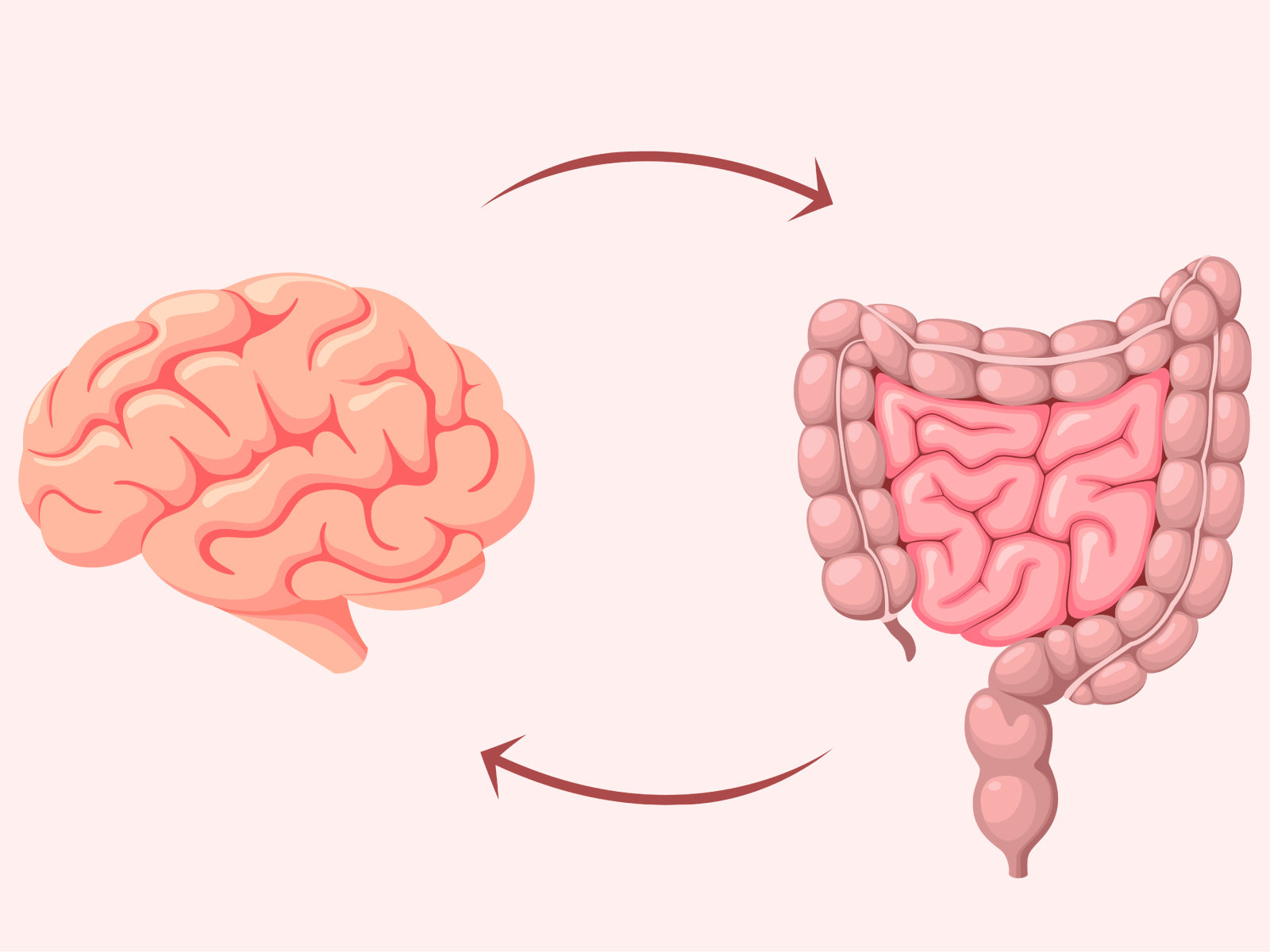The Gut-Brain Axis: Is it really a thing?

The gut-brain axis is a trending topic that has captured the attention of researchers from all around the world. It is now widely accepted that what happens in our gut affects our moods and behavior. A vast amount of scientific evidence confirms the influence of the microbiome on this axis in health and the development of diseases.
But, what exactly do we know about it? And, why do some medical experts call the gut our “second brain"?
We often think of our brain as being in charge of our body, but it is not some sort of terrible manager that bosses our body around. Quite the opposite! The brain and the gut, for instance, are more like colleagues instead.
Actually, this notion that the brain and our gut talk with each other is not new. In fact, it was widely recognized in Ancient Greece. Philosophers such as Hippocrates, Plato, and Aristotle postulated that the brain and the rest of the body were deeply interconnected.
Gut-brain axis
They interact with each other via the immune system, tryptophan metabolism, the vagus nerve, and the enteric nervous system much like we would use our phones or social media to communicate. And the tools they use to interact are both physical and chemical: nerve cells, microbes and microbial metabolites are involved among other things.
So like we said before, this is not a one-way communication system commanded by the brain giving orders to the rest of the body. Today we know that the flow of communication goes in all directions and that all parties influence each other.
This explains why your body is able to produce stomach juices when you think about food but also why we can sometimes feel irritable just because we are hungry!
So, interesting enough the notion of the "second brain" is in part due to the huge amount of nerve cells located in our gut, but also for its capacity to act independently of our brain and make complex decisions with tremendous impact on our overall health.
The gut-brain connection
Let’s take a closer look at the physical and chemical connectors.
1. The Vagus nerve
The vagus nerve is a large nerve that runs from the brain to the colon, physically connecting them. It is the main component of the parasympathetic nervous system, the part that controls bodily functions when we are resting. And it's involved in the modulation of inflammation, the maintenance of intestinal balance, and the regulation of food intake, satiety, and energy balance.
Although it’s a relatively new area of research, there is preliminary evidence suggesting that gut bacteria may have beneficial effects on mood and anxiety, partly by affecting the activity of the vagus nerve.
The fibers of the vagus nerve are not in direct contact with the gut, but they can sense signals through bacterial metabolites. For example, SCFAs (short-chain fatty acids), one of the beneficial compound groups produced by the gut, can activate the vagal nerves and the information travels to the brain generating a specific response.
Stress is another good example of this connection. It inhibits the vagus nerve producing harmful effects on the gut composition, and this can lead to disorders such as IBS or IBD which are characterized by dysbiosis and low activity of the vagus nerve.
There is also a well-known interaction between nutrition and the vagus nerve and since the activity of the vagus nerve is correlated with the capacity to manage stress responses, can influence food intake and weight gain.
Getting to know the composition of your gut bacteria and focusing on boosting the beneficial ones, would be of interest to restore homeostasis in the microbiota-gut-brain axis.
2. Neurotransmitters
These chemical messengers carry signals between nerve cells and target cells throughout the body and work every day to regulate digestion, brain functioning and affect a huge variety of functions such as fear, mood, and pleasure.
The gut microbiome speaks with the nervous system, regulating this messengers. Indeed, some types of bacteria can produce neurotransmitters, for example, serotonin and gamma-aminobutyric acid (GABA), which are both important for our emotional well-being.
Although serotonin is well known as a brain neurotransmitter, it is estimated that 90 percent of the body's serotonin is made in the gut. In fact, altered levels of this peripheral serotonin have been linked to different diseases such as irritable bowel syndrome, cardiovascular disease, and osteoporosis.
While serotonin is involved in gastrointestinal secretion and peristalsis, it is also broadly used throughout the entire body. In fact, changes in serotonin levels may also send signals to the brain, and affect the production of other neurotransmitters there. In the brain, serotonin is really important to control our mood and also sleep.
3. The gut-brain-immune system connection
Another crucial component of the gut-brain axis is our immune system. This network of biological processes that protects us from diseases and harmful microbes, is actually modulated, educated, and trained by the gut microbiome. For example, when the gut is exposed to different microbes, there is a continued diversification of B and T cells, the primary agents responsible for acquired immunity that works together to recognize foreign substances in our bodies.
When working in optimal conditions this immune system–microbiome alliance protects us from pathogens, but it can be disrupted in case of imbalances in the gut ecosystem.
This phenomenon explains the dramatic rise in autoimmune and inflammatory disorders when this symbiotic relationship with the microbiota has been affected.
And another crucial fact is that a large proportion of your immune system is actually found in the gut. This, again, reflects another expression of the two-way communication between systems in our body: Just as your immune system can impact your gut health, your gut microbiome can directly affect your immune system.
Conclusion
- The bidirectional communication between the brain and the gut is a complex system known as the “brain-gut axis". It includes the immune system, chemical messengers called neurotransmitters, and a physical connection via the vagus nerve.
- The gut microbiome plays a significant role in this communication, regulating gastrointestinal balance, regulating the levels of hormones and neurotransmitters, and also influencing our mood and anxiety, by affecting the activity of the vagus nerve.
- This vital connection is another reason to explore the unique makeup of your gut microbiome and improve your overall health starting in your gut.
Author: Cecilia Clausen (Clinical Dietitian)
